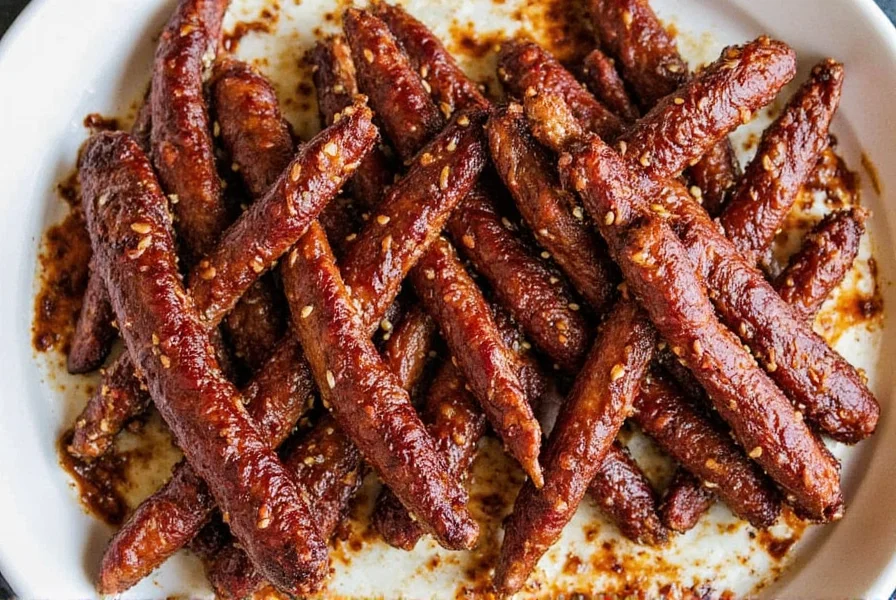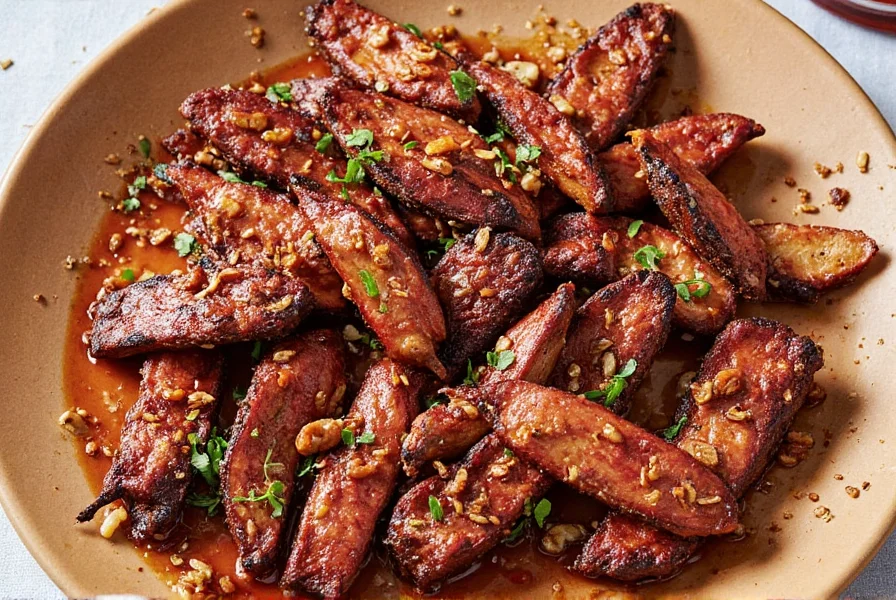The History of Mustard Seed BBQ Tradition
Mustard-based barbecue sauce originated in South Carolina, particularly in the central region around Columbia. German immigrants brought mustard seeds and preparation techniques to the area in the 18th century, adapting them to local barbecue traditions. Unlike vinegar-based Eastern Carolina styles or tomato-based Western styles, the mustard seed BBQ variation created a unique regional identity.
Historical records show German settlers using mustard seeds in meat preservation as early as the 1730s. The technique evolved as settlers incorporated local ingredients and barbecue methods. By the mid-19th century, mustard-based sauces had become a defining characteristic of central South Carolina barbecue culture. Today, this style remains protected as part of the region's culinary heritage, with annual festivals celebrating the distinctive yellow sauce.
Why Mustard Seeds Enhance BBQ Applications
Mustard seeds offer several advantages over prepared mustard in barbecue applications. When used whole or freshly ground, they provide:
- Natural emulsification properties that help sauces adhere to meat
- Complex flavor development during cooking as enzymes activate
- Textural contrast that prepared mustard lacks
- Controlled heat release as seeds burst during cooking
- Superior binding capabilities for dry rubs
The glucosinolates in mustard seeds interact with meat proteins, enhancing flavor penetration while the natural acidity helps tenderize tougher cuts. Unlike vinegar-based sauces that can curdle when heated, mustard seed sauces maintain stability throughout the cooking process.
| Mustard Seed Type | BBQ Application | Flavor Profile | Recommended Use |
|---|---|---|---|
| Yellow Mustard Seeds | Sauces and wet mops | Mild, slightly tangy | Traditional South Carolina sauce base |
| Brown Mustard Seeds | Dry rubs and marinades | Spicy, pungent | Pork shoulder and ribs |
| Black Mustard Seeds | Finishing accents | Strongest heat, complex notes | Finishing rubs for chicken |
Optimal Meat Pairings for Mustard Seed BBQ
While mustard seed BBQ sauce works with various proteins, certain meats showcase its qualities best. The acidity cuts through rich fats while the subtle heat enhances natural flavors without overwhelming them.
Pork shoulder represents the classic pairing. The high fat content of this cut benefits from mustard's emulsifying properties, creating a beautiful bark while keeping the meat moist. Pulled pork sandwiches with mustard seed sauce have become iconic in South Carolina barbecue competitions.
Chicken thighs provide another excellent canvas. The dark meat's richness balances perfectly with the tangy sauce. When using mustard seeds in a dry rub for chicken, the Maillard reaction creates complex flavor compounds that complement the seeds' natural nuttiness.
For those exploring beyond traditional pairings, brisket benefits from mustard seed's tenderizing properties. The seeds help break down connective tissue during the long smoking process, resulting in exceptionally tender meat with a distinctive flavor profile.
Mastering Mustard Seed BBQ Sauce Preparation
Creating authentic mustard seed BBQ sauce requires attention to seed preparation and cooking technique. The traditional South Carolina-style recipe starts with whole yellow mustard seeds soaked overnight to soften their sharp edges.
For optimal results when making south carolina mustard bbq sauce from scratch, follow these steps:
- Soak 1 cup yellow mustard seeds in 2 cups apple cider vinegar for 12-24 hours
- Drain seeds and combine with honey, brown sugar, and spices
- Simmer gently for 20-30 minutes to develop flavors
- Cool completely before applying to meat
The soaking process is crucial for using mustard seeds in barbecue sauces properly—it reduces bitterness while preserving the seeds' textural integrity. Many amateur cooks skip this step, resulting in overly sharp sauces that dominate rather than complement the meat.
Avoiding Common Mustard Seed BBQ Mistakes
Several pitfalls can undermine even the most carefully prepared mustard seed BBQ. Understanding these common errors helps ensure success:
Overheating the sauce: Mustard seeds release bitter compounds when boiled vigorously. Maintain a gentle simmer below 180°F (82°C) to preserve flavor balance when preparing mustard seed bbq sauce recipes.
Improper seed-to-liquid ratio: Too many seeds create a gritty texture, while too few provide insufficient flavor. The ideal ratio for south carolina style mustard bbq is 1:2 seeds to liquid by volume after soaking.
Mis-timed application: Applying mustard seed sauce too early in the cooking process can cause burning. For best results with mustard seed barbecue techniques, apply during the final 30-60 minutes of cooking or use as a finishing sauce.
Ignoring regional variations: South Carolina's mustard BBQ tradition includes subtle regional differences. The Columbia area favors sweeter preparations, while areas closer to Charleston incorporate more vinegar. Understanding these nuances helps create authentic mustard seed bbq experiences.
Modern Interpretations of Mustard Seed BBQ
Contemporary pitmasters have expanded traditional mustard seed BBQ applications while respecting the foundation. Innovative approaches include:
- Smoked mustard seed oils for finishing dishes
- Fermented mustard seed pastes that develop complex umami notes
- Mustard seed-infused brines for poultry
- Combining mustard seeds with fruit elements like peach or apple
These modern techniques for using mustard seeds in barbecue maintain the essential character while appealing to contemporary palates. The key is preserving the distinctive mustard seed flavor while enhancing rather than masking it.

Whether you're exploring authentic south carolina mustard bbq sauce recipes or developing your own variations, understanding the fundamental properties of mustard seeds elevates your barbecue from ordinary to exceptional. The unique combination of acidity, subtle heat, and textural interest makes this regional specialty worthy of exploration by any serious barbecue enthusiast.
What's the difference between mustard seed BBQ and regular mustard BBQ?
Mustard seed BBQ specifically uses whole or freshly ground mustard seeds rather than prepared mustard. This provides textural complexity, controlled heat release, and more nuanced flavor development during cooking. Traditional mustard BBQ sauce often relies on bottled yellow mustard, while authentic mustard seed BBQ starts with raw seeds that are soaked and cooked to develop their full flavor potential.
Which meats work best with mustard seed BBQ sauce?
Pork shoulder is the classic pairing for mustard seed BBQ, as the sauce's acidity cuts through the rich fat content. Chicken thighs also work exceptionally well, with the dark meat complementing the tangy sauce. Brisket benefits from mustard seed's tenderizing properties during long smoking sessions. While traditionally used with pork, creative applications now include mustard seed sauces with salmon and even plant-based proteins.
How do I prevent my mustard seed BBQ sauce from becoming bitter?
To prevent bitterness in mustard seed BBQ sauce, always soak the seeds in vinegar for 12-24 hours before cooking. This process reduces the sharp compounds. Additionally, avoid boiling the sauce—maintain a gentle simmer below 180°F (82°C). Using honey or brown sugar helps balance any remaining bitterness. The ideal ratio is 1 cup soaked seeds to 2 cups liquid for traditional South Carolina-style preparation.
Can I use mustard seed BBQ sauce as a marinade?
Yes, mustard seed BBQ sauce makes an excellent marinade, particularly for chicken and pork. The enzymes in mustard seeds help tenderize meat while the acidity enhances flavor penetration. For best results, marinate for 4-12 hours—longer than vinegar-based marinades since mustard works more gently. Whole seeds in the marinade create flavorful pockets as they burst during cooking, adding textural interest to the finished dish.
How should I store homemade mustard seed BBQ sauce?
Store homemade mustard seed BBQ sauce in airtight containers in the refrigerator for up to 3 weeks. The vinegar content acts as a natural preservative. For longer storage, freeze in ice cube trays then transfer to freezer bags—this allows you to thaw only the amount needed. Properly stored south carolina mustard bbq sauce develops more complex flavors over the first week as the seeds continue to release their compounds.











 浙公网安备
33010002000092号
浙公网安备
33010002000092号 浙B2-20120091-4
浙B2-20120091-4